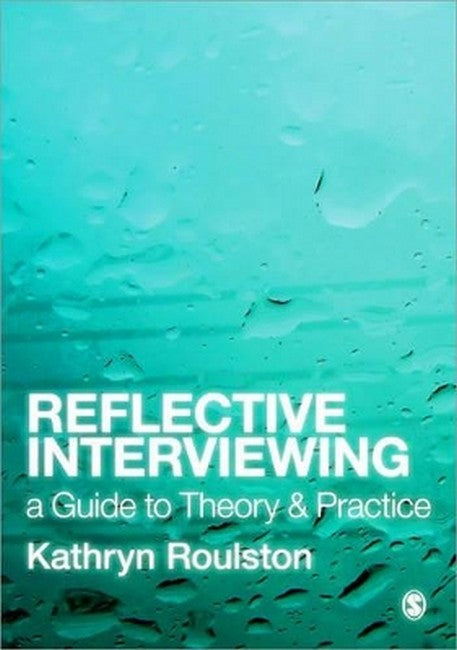Kathryn Roulston is a Professor in the Qualitative Research Program in the Mary Frances Early College of Education at the University of Georgia in Athens, Georgia, where she teaches qualitative research methods. Her research interests include qualitative research methods, qualitative interviewing, and analyses of talk-in-interaction. She is editor of Interactional Studies of Qualitative Interviews (2019), and with Kathleen deMarrais, has co-authored Exploring the Archives: A Beginner's Guide for Qualitative Researchers (forthcoming). She has contributed chapters to The SAGE Handbook of Interview Research (2012, 2nd edition), The SAGE Handbook of Qualitative Data Analysis (2014), The SAGE Handbook of Data Collection (2018), and the forthcoming volume, The SAGE Handbook of Qualitative Research Design. Her articles have been published in Qualitative Research, Qualitative Inquiry, International Journal of Social Research Methodology, International Journal of Qualitative Methods, and International Review of Qualitative Research among other journals.
Request Academic Copy
Please copy the ISBN for submitting review copy form
Description
Introduction Asking Questions and Individual Interviews Interviews with Groups Theorizing the Qualitative Interview Designing Studies That Use Interviews Doing Interview Research Theorizing the Researcher: The Reflective Interviewer Examining Interview Talk Analyzing and Representing Interview Data Final Thoughts: Learning How to Interview
What [Roulston] provides is an excellent blend of the theory and practice of interviewing with a careful analysis of the literature on the theoretical aspects of qualitative research, much of which can be off-putting to a new researcher because of its density. This is carefully synthesized with the more practical aspects of interviewing where different scenarios are examined showing there is no 'one size fits all' approach Management Learning 'You might expect a book on interviewing in qualitative research to focus solely on the procedures of conducting interviews; however [in this book] Roulston offers this perspective and much more. In particular, her new book addresses ways in which the researcher's theoretical perspective can inform not only the interview but also each stage of the research process...This thoughtful approach to research will benefit novice qualitative researcers, helping them to not only learn some of the procedures involved in research but also to bring critical reflection to their research studies The Weekly Qualitative Report I found the narrative well constructed, which resulted in a comprehensive 'journey' through the different thought processes and practicalities of qualitative interviewing...Every chapter is well referenced, contains helpful case examples of the topic and ends with a useful reading list and an exercise which could be used as easily on oneself as in a lecture hall. The book is rounded off with a list of top tips from experienced researchers and a substantial reading list. Overall I found this comprehensive and accessible Social Research Association News

